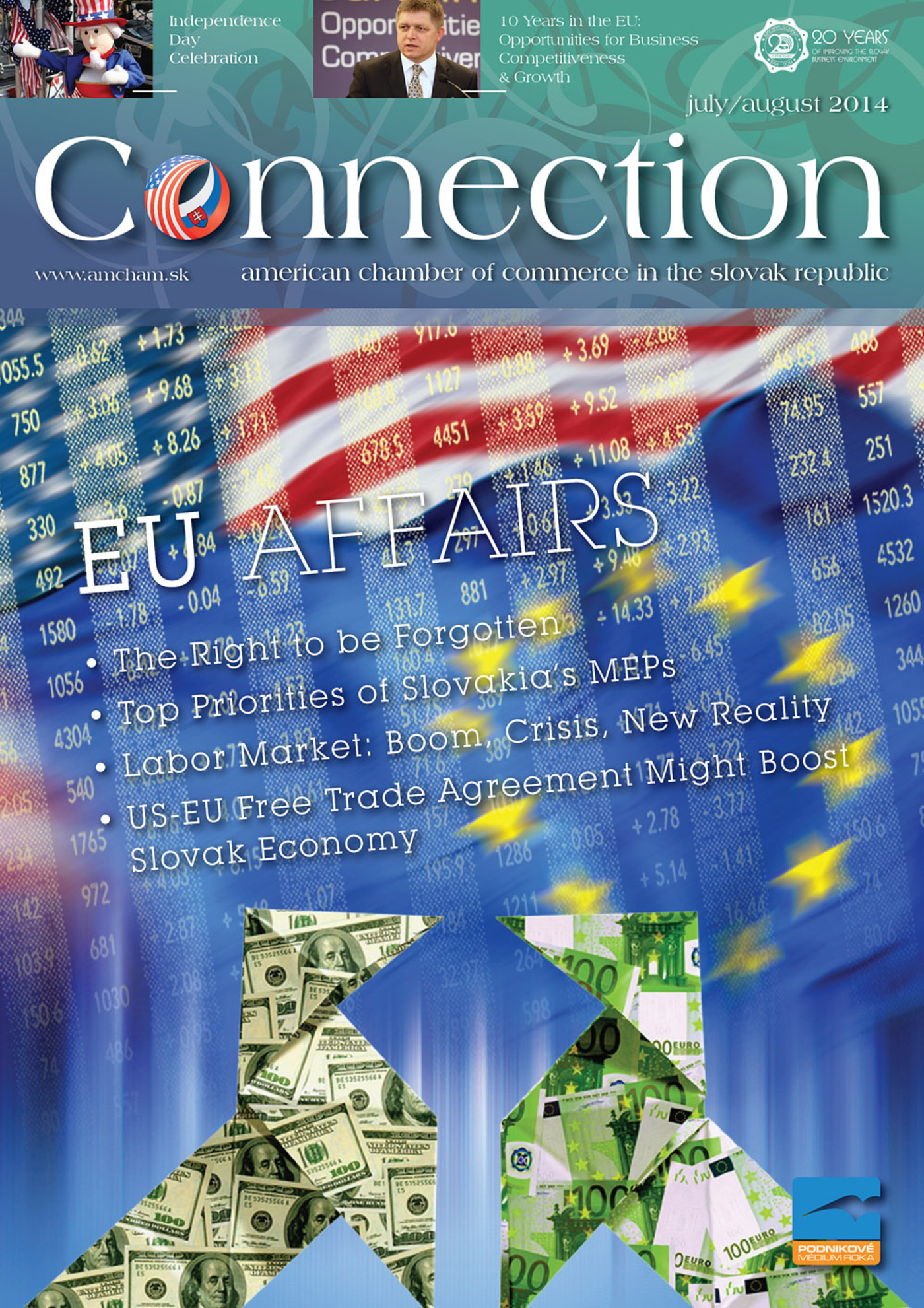Now, ten years later, the picture is much more bleak. A certain amount of euro-skepticism and criticism of Brussels is readily obvious within the business community in Slovakia. Much of this is rooted in an inability to understand how Brussels really works, and how to influence or even communicate with the EU institutions.
Let me start with several commonly held opinions about the EU which I often hear from CEOs in Slovakia:
Decisions take too long at the EU level
Yes. The EU legislative process is longer than that of the national level; however, this is not necessarily a bad thing. There are various objective reasons, such as the fact that for all new legislation an impact analysis is required (which we do not have in Slovakia), and there are various consultations with stakeholders at all levels, on top of which it is not so easy to accommodate the interests of all 28 member states.
The EU is a complicated labyrinth
True, to some extent. Even people who are informed and more educated on EU matters are often surprised when the EU “suddenly” comes up with some new initiative, or there is a sudden change in the pre-final version of some legislative proposal. In this regard, the EU could learn from Slovakia and implement our truly unique “legislative portal” which could serve as a good model. On the other hand, our public servants could learn from the openness and easy-access to EU officials, as it would not happen that an EU official would ever reject a meeting with someone.
It is impossible for a small country like Slovakia to influence EU policies
Untrue. Slovakia has the same voice as any other member state, and at expert level meetings in the Council our government representatives (assuming they have the necessary skills and knowledge) can have a real influence on the final versions of legislative proposals. Therefore, it is really important for businesses to communicate their concerns towards the relevant government representatives within ministries, Permanent Representation, national experts in the EC, etc. The experience of Slovakia (but also of other member states) is that different levels of government often do not pass messages amongst themselves, so the best strategy is to communicate your concerns to all of them.
The European Parliament is unimportant, and our 13 members cannot really bring any change to legislative proposals
Untrue. The European Parliament is becoming stronger, and it can make things more difficult, and slow down, or, in extreme cases, even stop certain legislation. Even one member of the European Parliament, if he or she is a rapporteur/member of a relevant parliamentary committee and/or has the necessary political skills to gain support from fellow members, can influence the final outcome of the legislation. Therefore, it is important to watch the activities or our new MEPs -- what committees they are members of and what issues they want to focus on.
The EU is in Brussels and so is far away
The EU is in Slovakia, and Slovakia has representatives at all levels in the EU. So often it is not even necessary to travel to Brussels. Of course in more serious matters like infringements and competition issues, you cannot succeed without direct contact with the relevant officials in Brussels.
As a result of this we have observed the following negative trends:
- there are a few companies (up to five on the Slovak market) which still have EU affairs departments/specialists
- regulatory/ government affairs departments in companies are downsized/cancelled/merged or even moved away from Slovakia to a regional level
- trade federations/ business associations do not send their representatives to represent them within the EU level associations in Brussels, which they explain through budgetary constraints
- international companies present in Slovakia do not have the necessary EU affairs competency, because, as they explain, “this area is covered by our headquarters’ representation in Brussels” which in most of the cases does not work that way
When we joined the European Union, we tried to unite the Slovak business community in Brussels, and there was even a plan to establish a “House of Slovak Business” in Brussels. We succeeded in launching representations of the Slovak Regions in Brussels, but in the meantime, most of them are considering closing down their representations in Brussels, which is unfortunate. There are some positive signs however, so we do not have a completely bleak picture about the “Slovak voice” in Brussels. To mention just one positive news which hasn’t received the coverage it deserves - the Slovak Liaison Office for Research and Development (SLORD) in Brussels launched its activities this spring, a result of several years of effort by our Permanent Representative in Brussels, Ambassador Ivan Korčok.
Also, I was recently giving a presentation to a Slovak community in Brussels, and I was pleased to meet a group of about 70 young and talented Slovaks working mostly in the private sector in Brussels for different prestigious law firms, EU-level associations, think-tanks, etc. This is “human capital” that Slovakia can build upon in the future.
Slovakia is holding the EU PRESIDENCY in the fall of 2016, which could be a wonderful opportunity for a new start of active participation of the Slovak business community in decision-making processes in Brussels. Shall we seize this opportunity?
Patrik Zoltvany, Co-founder & Senior Partner at FIPRA Slovakia and Head of EU Representation of Business Alliance of Slovakia in Brussels



Follow us